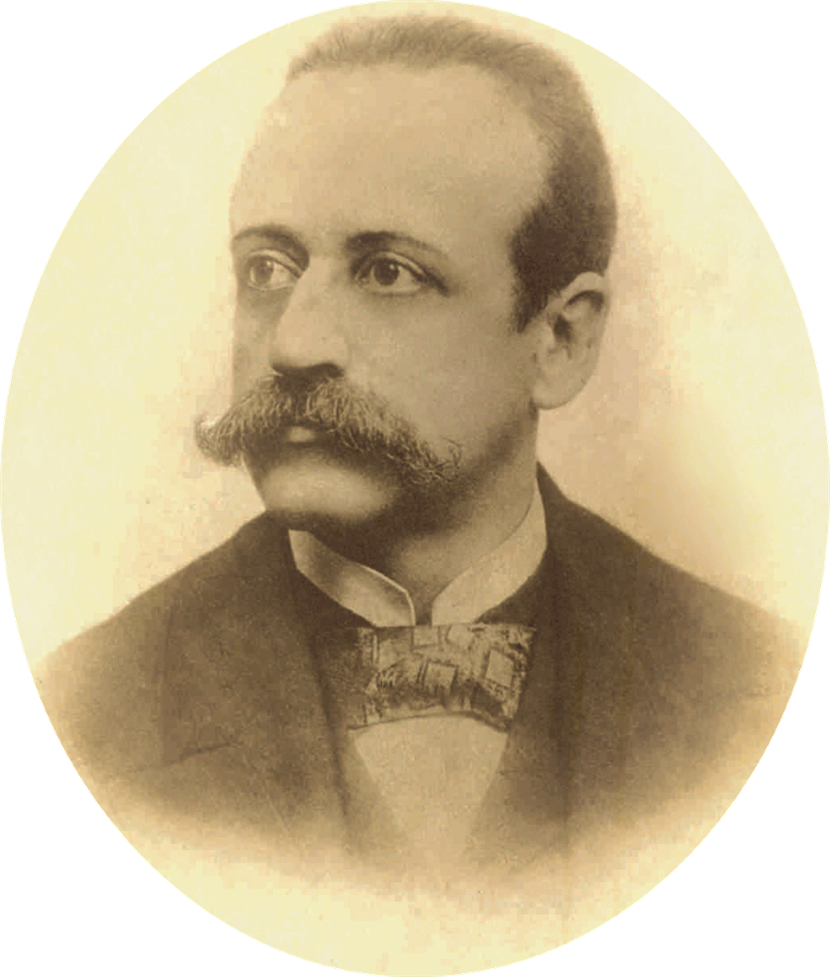Antonio José Perreira da Silva Araújo was born on September 18, 1853, in the city of Salvador in the State of Bahia. He was the son of José Pereira da Silva Araújo and Maria Gertrudes Muniz de Aragão.
He graduated in medicine in 1874, after successfully submitting a final paper titled “A Dissertation on the Pathogenesis of Rheumatic Fever, Purulent Skin Infections, and Sepsis.”
The surgeon was elected as a Full Member of the Imperial Academy of Medicine and was sworn in on November 7, 1882. Five years later, in 1897, he would begin his term as President of the institution, which lasted until 1900.
Dr. Pereira da Silva Araújo became a staple among syphilogists during the second half of the 19th century, consequently being deemed the father of the field in Brazil.
During the 1880s, he decided to settle permanently in the city of Rio de Janeiro and started gaining international acclaim for his work. He was an advocate of an experimental and practical type of medicine and was considered one of the country’s main representatives of Dr. Pasteur’s concepts.
This consequently led the Academia Nacional de Medicina (National Academy of Medicine – ANM) to entrust him with the task of delivering a eulogy for Pasteur in 1895.
Dr. Silva Araújo worked as a physician at a ward that provided shelter and care for abandoned children in the Santa Casa de Misericórdia General Hospital, while additionally holding the positions of Head of the Department of Cutaneous Diseases and Syphilis and Dean of the Rio de Janeiro Polyclinic Hospital’s Microscopy Laboratory.
His work as a scholar signals close ties with the field of tropical parasitology, after which he took on a special interest in bacteriology and helped to spread awareness on the already internationally respected fields of dermatology and syphilography in Brazil.
At the time, Brazilian syphilogists believed in European theories and ideas, although they kept producing considerably original data, findings, and interpretations. Furthermore, they were keen participants of increasingly frequent international meetings aimed at discussing more technical and scientific sides to the condition, as opposed to ascertaining the best “weapons” to be used to tackle venereal diseases.
Dr. Antonio José Pereira da Silva Araújo passed away on June 2, 1900.
Número acadêmico: 128
Cadeira: 65
Membro: Titular
Secção: Cirurgia
Eleição: 07/11/1882
Posse: 07/11/1882
Sob a presidência: José Pereira Rego (Baron of Lavradio)
Falecimento: 02/06/1900

Número acadêmico: 128
Cadeira: 65
Membro: Titular
Secção: Cirurgia
Eleição: 07/11/1882
Posse: 07/11/1882
Sob a presidência: José Pereira Rego (Baron of Lavradio)
Falecimento: 02/06/1900

Antonio José Perreira da Silva Araújo was born on September 18, 1853, in the city of Salvador in the State of Bahia. He was the son of José Pereira da Silva Araújo and Maria Gertrudes Muniz de Aragão.
He graduated in medicine in 1874, after successfully submitting a final paper titled “A Dissertation on the Pathogenesis of Rheumatic Fever, Purulent Skin Infections, and Sepsis.”
The surgeon was elected as a Full Member of the Imperial Academy of Medicine and was sworn in on November 7, 1882. Five years later, in 1897, he would begin his term as President of the institution, which lasted until 1900.
Dr. Pereira da Silva Araújo became a staple among syphilogists during the second half of the 19th century, consequently being deemed the father of the field in Brazil.
During the 1880s, he decided to settle permanently in the city of Rio de Janeiro and started gaining international acclaim for his work. He was an advocate of an experimental and practical type of medicine and was considered one of the country’s main representatives of Dr. Pasteur’s concepts.
This consequently led the Academia Nacional de Medicina (National Academy of Medicine – ANM) to entrust him with the task of delivering a eulogy for Pasteur in 1895.
Dr. Silva Araújo worked as a physician at a ward that provided shelter and care for abandoned children in the Santa Casa de Misericórdia General Hospital, while additionally holding the positions of Head of the Department of Cutaneous Diseases and Syphilis and Dean of the Rio de Janeiro Polyclinic Hospital’s Microscopy Laboratory.
His work as a scholar signals close ties with the field of tropical parasitology, after which he took on a special interest in bacteriology and helped to spread awareness on the already internationally respected fields of dermatology and syphilography in Brazil.
At the time, Brazilian syphilogists believed in European theories and ideas, although they kept producing considerably original data, findings, and interpretations. Furthermore, they were keen participants of increasingly frequent international meetings aimed at discussing more technical and scientific sides to the condition, as opposed to ascertaining the best “weapons” to be used to tackle venereal diseases.
Dr. Antonio José Pereira da Silva Araújo passed away on June 2, 1900.